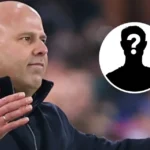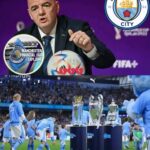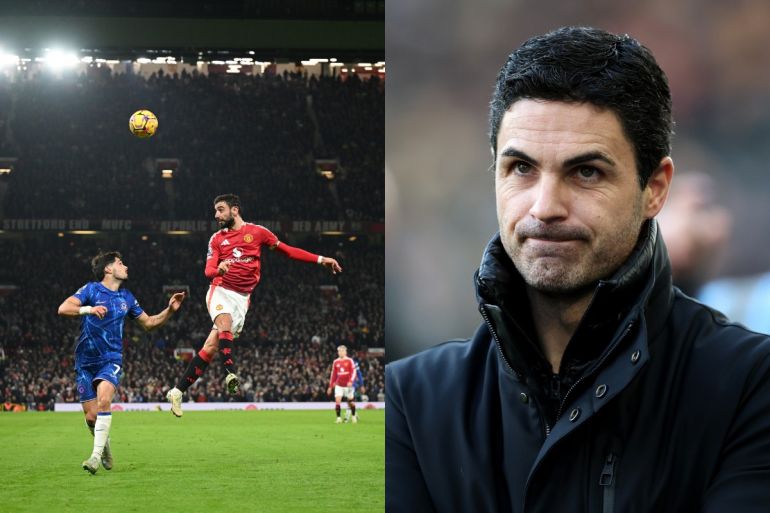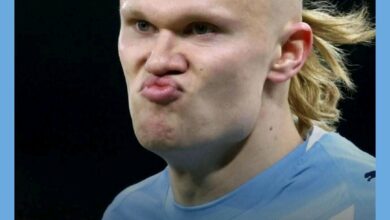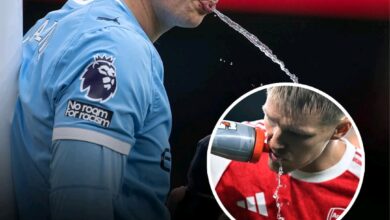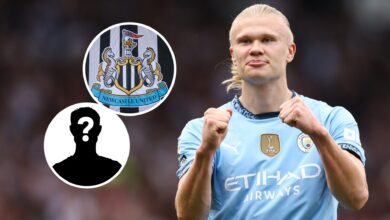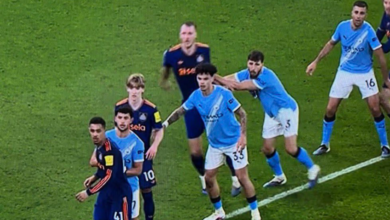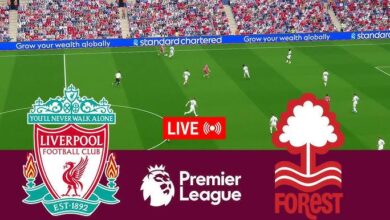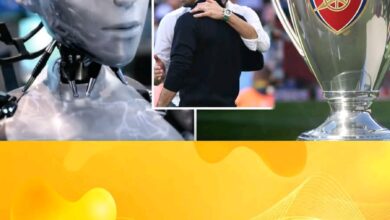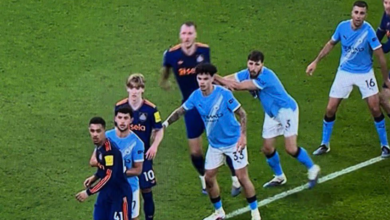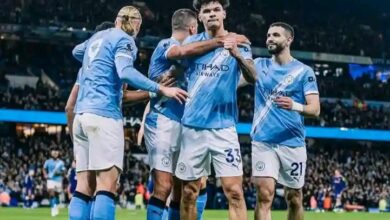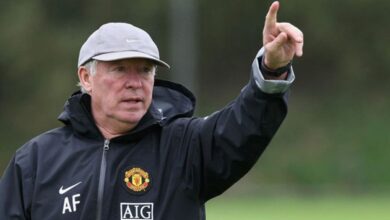Manchester City ‘sent a private plane’ to try and sign player who’s now a £54m star at Chelsea
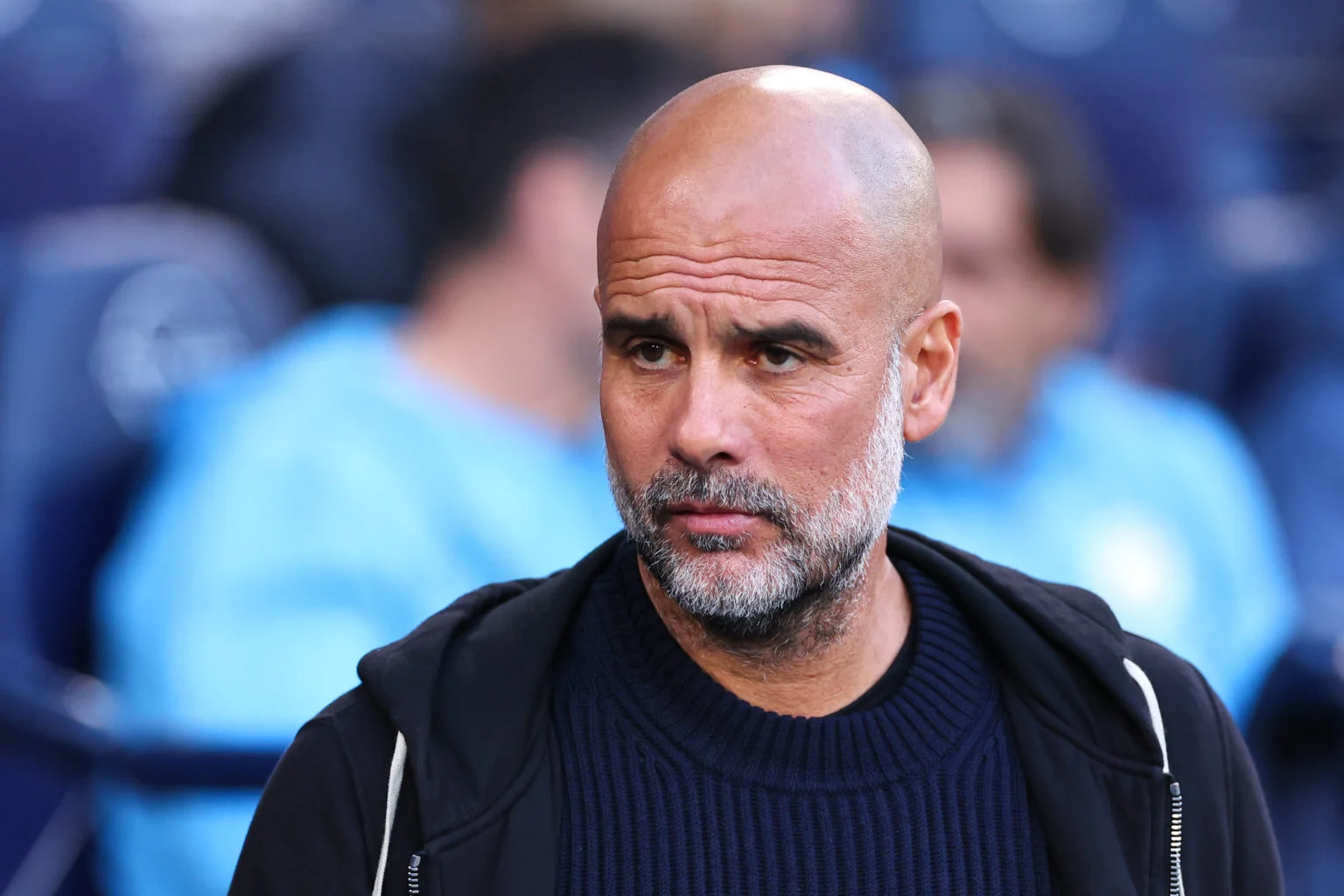
In the high-stakes world of elite football recruitment, even the most powerful clubs occasionally miss out on transformative talents. Manchester City, despite their financial might and global appeal, are no exception to this rule. Recent revelations have shed light on one such near-miss that might have altered the trajectory of both the player and the club.
According to Rui Santos, former youth coach at Portuguese club Braga, Manchester City went to extraordinary lengths to sign a teenage Pedro Neto before he ultimately found his way to the Premier League through Wolverhampton Wanderers.
“When Pedro Neto played for the Under-17 side at Braga, Manchester City had a great interest in him,” Santos revealed in an exclusive interview with GiveMeSport. “They even sent a private plane to take him to the club and show him around. He is now performing at a high level at Chelsea and has a magical quality to his game.”
This tantalizing glimpse into what might have been comes at a time when Neto is flourishing at Chelsea following his £54 million transfer from Wolves in 2024. The Portuguese winger has established himself as a regular starter at Stamford Bridge, vindicating both his substantial price tag and City’s early interest in his talents.
Neto’s journey to the elite level took a circuitous route after City’s courtship. Rather than make an immediate leap to a European powerhouse, he remained at Braga, subsequently spent time on loan at Italian side Lazio, before Wolves secured his signature in 2019. The Molineux club engineered a double deal for Neto and fellow Portuguese talent Bruno Jordao, reportedly worth £18 million—a figure that now appears remarkably modest given Neto’s subsequent development and valuation.
The revelation speaks volumes about Manchester City’s extensive scouting network and their commitment to identifying emerging talent long before such players become household names. That City recognized Neto’s potential while he was still developing in Braga’s youth setup demonstrates the club’s forward-thinking recruitment strategy—one that balances ready-made stars with promising prospects.
City’s Youth Revolution: The Stars of Tomorrow
While the failure to land Neto might represent a missed opportunity, City supporters have plenty of reason for optimism regarding the club’s youth development pathway. The emergence of homegrown talents like Nico O’Reilly, James McAtee, and Rico Lewis into Pep Guardiola’s first-team setup exemplifies the club’s successful academy infrastructure.
These academy graduates represent just the tip of the iceberg. The 2024/25 season has seen City make significant investments in emerging talent, with Abdukodir Khusanov, Omar Marmoush, Nico Gonzalez, Vitor Reis, and Juma Bah all arriving at the Etihad. Each represents a calculated gamble on potential, with City’s coaching staff tasked with molding these raw materials into finished products capable of maintaining the club’s domestic and European dominance.
Looking further down the pipeline, City’s academy continues to produce exciting prospects. Divin Mubama, Divine Musaka, and Ryan McAidoo have been identified as the next wave of talent poised to make the transition from youth football to the senior environment. Their development trajectories will be closely monitored by the club’s coaching staff, with Guardiola having demonstrated his willingness to integrate young players who demonstrate the requisite technical ability and tactical intelligence.
This balanced approach to squad building—combining established stars, strategic market acquisitions, and academy graduates—has become a hallmark of City’s recruitment philosophy. While the club remains willing to invest heavily in proven quality when necessary, the emphasis on identifying and nurturing younger talent provides both sporting and financial sustainability.
Midfield Titans: Rodri vs. Yaya Toure
Every great team is built around a dominant midfield, and Manchester City’s recent dynasty has been no exception. The club has been blessed with extraordinary central midfielders during its ascent to the European elite, with Yaya Toure and Rodri representing two different eras of dominance.
Former Liverpool defender and current pundit Jamie Carragher recently stirred debate by suggesting that current City midfielder Rodri surpasses even the prime version of club legend Yaya Toure—a claim that has divided opinion among supporters and analysts alike.
“Rodri is the incumbent Ballon d’Or holder, so it’s easy to see why Carragher picked the £63m man here,” notes the analysis of this comparison. The Spaniard’s influence on City’s play has been immeasurable, with his absence through injury during parts of the current campaign highlighting just how crucial he is to Guardiola’s system.
Interestingly, Toure himself appears to hold his successor in high regard. When previously asked to compare Rodri with England international Declan Rice, the Ivorian opted for the City man—a significant endorsement from a player whose own accomplishments at the Etihad set an extraordinarily high benchmark.
Comparing these two midfield maestros reveals fascinating contrasts in playing style and statistical output. Toure, particularly during his phenomenal 2013/14 campaign when he contributed 20 goals toward City’s Premier League triumph, offered an extraordinary combination of physical dominance and technical refinement. His ability to drive forward from midfield, score from distance, and deliver in decisive moments made him one of the Premier League’s most complete midfielders.
Rodri, while less prolific in terms of direct goal contributions, offers different qualities that have proven equally valuable to City’s evolution under Guardiola. His positional discipline, passing range, and tactical intelligence provide the foundation upon which City’s intricate attacking patterns are built. The statistics bear out this influence:
| Statistic | Yaya Toure | Rodri |
|---|---|---|
| Games | 316 | 260 |
| Goals | 82 | 26 |
| Assists | 45 | 31 |
| Wins | 200 | 191 |
| Draws | 52 | 40 |
| Losses | 64 | 29 |
| Win percentage | 63% | 74% |
| League titles | 3 | 4 |
| Cup wins | 4 | 3 |
| Champions League wins | 0 | 1 |
The most telling metric may be the win percentage, with City achieving victory in 74% of Rodri’s appearances compared to 63% during Toure’s era. This reflects both the Spaniard’s individual contribution and the overall strength of Guardiola’s City compared to the teams in which Toure played.
The trophy haul further underlines this distinction, with Rodri having already claimed one more Premier League title than his predecessor, along with the Champions League success that eluded City during Toure’s tenure. These achievements have cemented Rodri’s status as one of the premier midfielders in world football, with his Ballon d’Or recognition validating what City supporters have long appreciated about his influence.
This comparison encapsulates City’s evolution over the past decade—from ambitious challengers disrupting the established hierarchy to perennial favorites setting new standards of excellence. Both Toure and Rodri epitomize the qualities that defined their respective City eras, with the transition between them symbolic of the club’s overall progression under Abu Dhabi ownership.
Guardiola’s Future: What Comes Next?
As Manchester City navigate the challenges of the 2024/25 season—described as “the toughest since the Spaniard arrived”—speculation inevitably turns to the future of the architect behind their unprecedented success. Pep Guardiola, now in his ninth season at the Etihad, faces growing questions about his longevity in the role as his current contract approaches its conclusion in 2027.
Recent statements from the 54-year-old suggest that a hiatus from management awaits once his City tenure concludes. “I will take a break once my time with Man City comes to an end,” Guardiola confirmed this week, echoing the sabbatical he took following his intensive period at Barcelona before accepting the Bayern Munich position.
The timing of any departure remains uncertain, but several factors suggest a potential watershed moment approaching for the City project. Key players synonymous with Guardiola’s reign are reportedly preparing to depart this summer, with Kevin De Bruyne expected to pursue a move to Major League Soccer and goalkeeper Ederson linked with a lucrative transfer to Saudi Arabia.
These personnel changes would represent a significant transition for City, depriving Guardiola of two instrumental figures in the team’s tactical framework. De Bruyne’s creative genius has been central to City’s attacking fluency, while Ederson’s distribution skills have enabled the possession-based approach favored by the Spanish coach.
Beyond these immediate considerations lies the question of what might follow City for Guardiola. Intriguingly, reports suggest that national team management has long held appeal for the decorated coach. The opportunity to test his methodologies in the international arena, with its different rhythms and challenges compared to club football, presents a logical next step for a coach who has conquered the domestic and European club game.
The timing of the 2026 World Cup, scheduled to take place across North America, aligns tantalizingly with the conclusion of Guardiola’s current City contract the following year. This convergence has fueled speculation about potential national team destinations, with Brazil, England, and his native Spain all mentioned as possible suitors for his services.
For City, planning for the post-Guardiola landscape represents perhaps the most significant strategic challenge facing the club’s hierarchy. The Spaniard’s influence extends far beyond tactical matters, having shaped the club’s identity, recruitment philosophy, and training methodologies during his extended tenure.
Identifying a successor capable of maintaining the extraordinary standards established under Guardiola while potentially evolving the team’s approach will test the acumen of City’s sporting director Txiki Begiristain and chairman Khaldoon Al Mubarak. The experience of Manchester United following Sir Alex Ferguson’s retirement serves as a cautionary tale about the difficulties of transitioning from a transformative managerial figure.
City’s Current Campaign: Challenges and Opportunities
The 2024/25 season has presented Manchester City with a complex set of challenges, testing their resilience and adaptability in ways previous campaigns had not. Injuries to key personnel, most notably Ballon d’Or winner Rodri, have disrupted the team’s carefully calibrated balance, while rivals have strengthened significantly in pursuit of ending City’s domestic hegemony.
Despite these obstacles, City remain firmly in contention across all competitions as the business end of the season approaches. Their narrow 1-0 victory over Wolverhampton Wanderers, secured through determined defensive organization rather than the flowing attacking football typically associated with Guardiola’s teams, exemplified the pragmatic edge they have developed when circumstances demand.
Former Chelsea defender Frank Leboeuf singled out one particular City performer for praise following that hard-fought win, noting his contribution above even the influential Kevin De Bruyne. Such individual displays have proven vital during a campaign where collective fluency has occasionally proven elusive.
The impending return of Rodri from injury represents a significant boost to City’s prospects, with sources within the club reportedly optimistic about the timeline for his reintegration. The Spaniard’s absence has underlined his importance to City’s structural integrity, with no direct replacement possessing his unique combination of defensive awareness and progressive passing.
In his absence, others have stepped forward to shoulder additional responsibility. Josko Gvardiol’s performance against Wolves drew particular acclaim from supporters, highlighting the Croatian defender’s growing influence after a transitional first season following his £77 million transfer from RB Leipzig.
Even Kevin De Bruyne, approaching the twilight of his illustrious City career, continues to deliver moments of exceptional quality. Recent statistical analysis revealed that the Belgian matched a record previously held by Lionel Messi during the victory over Wolves, underlining his enduring class despite increasing speculation about his future.
The Bigger Picture: City’s Dynasty in Context
As Manchester City continue their pursuit of domestic and European honors, the broader context of their achievements under Guardiola merits consideration. The Spanish coach has transformed the club from wealthy aspirants to the definitive team of the era, establishing a dynasty that rivals any in Premier League history.
The statistical markers of this dominance are striking. Since Guardiola’s arrival in 2016, City have claimed six Premier League titles, including an unprecedented four in succession between 2020 and 2024. The Champions League triumph in 2023 removed the one significant omission from the club’s trophy cabinet, validating their status among Europe’s elite.
This sustained success has been built upon a distinctive playing philosophy, characterized by positional fluidity, technical excellence, and relentless ball circulation. Guardiola’s insistence on these principles, regardless of opposition or circumstance, has established an identifiable “City way” that permeates throughout the club’s structure.
The financial investment underpinning this sporting project cannot be ignored, with significant resources allocated to both transfer fees and infrastructural development. However, the translation of financial capacity into consistent on-field excellence required the visionary leadership provided by Guardiola and the administrative acumen of the wider sporting operation.
As City contemplate the next phase of their evolution, with or without their talismanic coach, they do so from a position of unprecedented strength. The combination of elite playing talent, world-class facilities, and institutional know-how provides the foundation for sustained competitiveness regardless of individual departures.
The challenge now becomes one of renewal and reinvention while maintaining the standards that have become expected. The potential departures of De Bruyne and Ederson signal the beginning of this transition, with emerging talents and strategic acquisitions tasked with upholding the legacy established during the Guardiola era.
For neutrals and rivals alike, the prospect of City navigating this evolutionary process presents one of the most intriguing subplots of the coming seasons. Whether they can sustain their dominance through this transition will determine if the Guardiola period represents the peak of their achievements or merely the first chapter in an extended period of supremacy.
Whatever unfolds, the transformation of Manchester City under Guardiola’s stewardship has redefined expectations within English football, establishing new benchmarks for excellence that may prove as influential as the team’s extensive collection of silverware. That legacy—of innovation, ambition, and relentless pursuit of perfection—stands as the most significant testament to the Spaniard’s impact, regardless of when his tenure eventually concludes.

